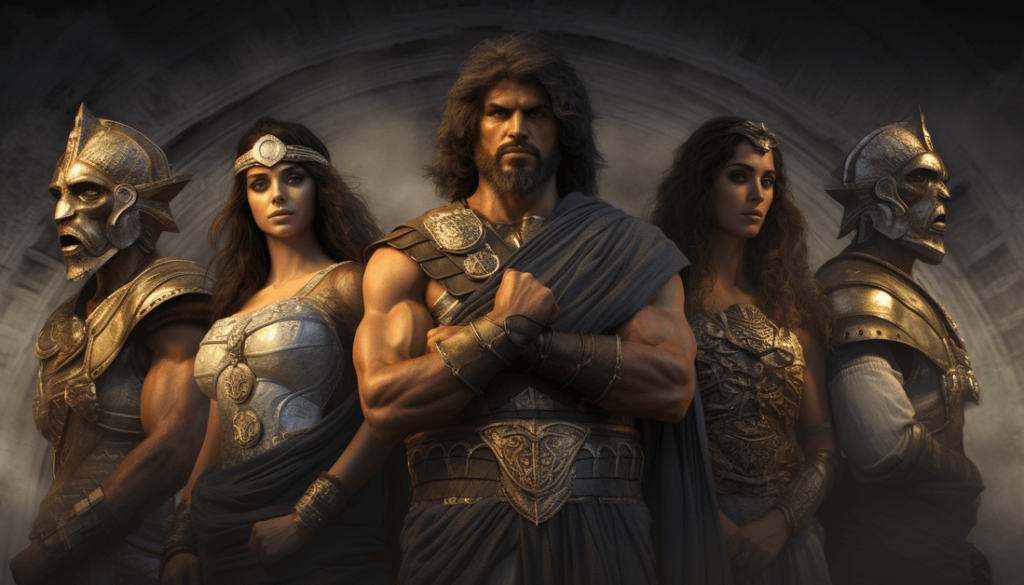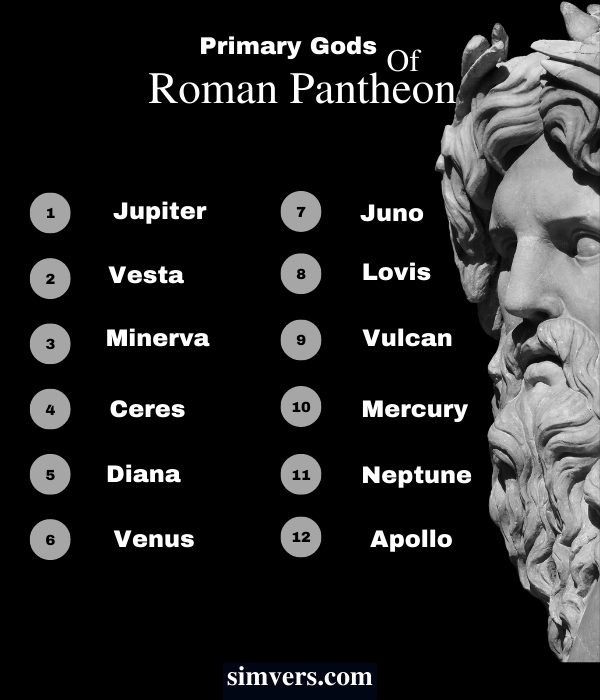
If you are a good student of myth and history in your community, you would have heard of a series of reports about divine beings who served as rulers for the people who lived where you are now.
The ancient Romans were polytheistic and they worshiped a variety of Roman gods and goddesses, which they believed helped them be successful in day-to-day life and, more importantly, assisted them in achieving their ultimate aim of establishing rule over a significant portion of the world.
The Greek pantheon provided the bulk of the Roman gods and goddesses
Categories used in classification
Like the grecian gods, the roman gods were divided into several categories. The 12 primary gods of the Roman Pantheon are known as the Council of the 12 or the Di Consentes deities.
They had a blatant resemblance to the Greek deities. Consentes signify a variety of things, but they typically mean that a council or consensus of deities exists. Although their names are not given, it is presumed that these are the lectisternium deities. The lectisternium deities placed deities in pairs. They are :
- Mercury–Ceres
- Vulcan–Vesta
- Apollo–Diana
- Jupiter–Juno
- Neptune–Minerva
- Mars–Venus
To understand the abilities of these gods and goddesses, you should check out the next outline.

MORE:
- How Soon After Death Do You Go To Heaven
- Japanese Gods
- Jesus’ Birth
- Is Jesus God
- Non-denominational Churches
Juno
Goddess of marriage, queen of the gods, and one of the Dii Consents.
Like the Greek goddess Hera.
Janus
God of doorways, beginnings, and ends who has two faces or heads.
Jupiter
King of the gods, the deity of lightning, storms, and the sky, as well as one of the Dii Consentes.
Venus
Mother of the founding hero Aeneas and one of the Dii Consentes, the goddess of love, beauty, sexuality, and gardens.
Vesta
One of the Dii Consentes; is the goddess of the home, the Roman government, and the holy fire.
Minerva
One of the Dii Consents and a goddess of wisdom, battle, the arts, industries, and trades.
Athena’s Roman equivalent
Mars
One of the Archaic Triad and Dii Consentes assigned a flamen maior; god of battle and the father of Romulus, the founder of Rome.
Ares, the Greek equivalent.
Apollo
One of the Dii Consentes and a deity of poetry, music, and oracles.
Mercury
Mercury, another Roman deity associated with a planet in the Solar System, has a wide variety of facets.
In addition to being the god of messengers, Mercury is also the god of business, luck, deception, and thieves.
In reality, it’s believed that his name is connected to the Latin word merx, which means merchandise.
Diana
One of the Dii Consentes and the twin sister of Apollo, the goddess of the hunt, the moon, virginity, and childbirth.
Vulcan
The god of the forge, fire, blacksmiths, and One of the Dii Consentes were given a flamen minor. He is the husband of Venus.
Neptune
One of the Dii Consentes and the deity of the sea, earthquakes, and horses.
Poseidon is the equivalent in Greek.
MORE:
- Gayatri Mantra
- Greek Gods & Goddesses
- Release Rage
- Holy Spirit
- How Long Should You Wait After Death For The Funeral
